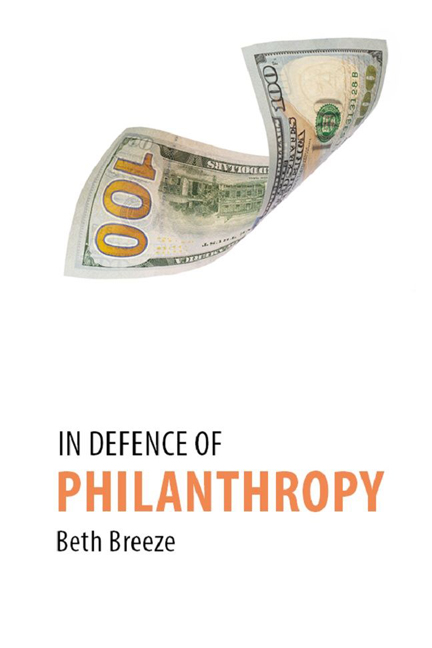Book contents
- Frontmatter
- Contents
- Acknowledgements
- Introduction: the need for a defence of philanthropy
- 1 What is philanthropy?
- 2 Is philanthropy really under attack?
- 3 The academic critique
- 4 The insider critique
- 5 The populist critique
- 6 Why do attacks on philanthropy stick and what can be done about it?
- Conclusion: in praise of philanthropy
- References
- Index
2 - Is philanthropy really under attack?
Published online by Cambridge University Press: 22 December 2023
- Frontmatter
- Contents
- Acknowledgements
- Introduction: the need for a defence of philanthropy
- 1 What is philanthropy?
- 2 Is philanthropy really under attack?
- 3 The academic critique
- 4 The insider critique
- 5 The populist critique
- 6 Why do attacks on philanthropy stick and what can be done about it?
- Conclusion: in praise of philanthropy
- References
- Index
Summary
Southsea Common is a large open space next to Portsmouth seafront on the south coast of the UK. Today it is a safe place to picnic, fly a kite or enjoy the beach volleyball court, but one bonfire night near the end of the nineteenth cen tury it was the site where an energetic female philanthropist, Sarah Robinson, was burnt in effigy for being “The Best Hated Woman in Portsmouth” (Black 2015: 47). What did Sarah do to provoke others to set her image on fire in a sym bolic act of violence? She used her own money, including selling her possessions, and fundraised for decades to establish and run the Soldier's Institute for Portsmouth, which pioneered a new ethic of care for military employees, pro viding hospitality for soldiers and their families in need of accommodation, education and entertainment, as well as a place of worship in line with her commitment to evangelical Christianity. Her efforts were opposed by those who did not appreciate female meddling in military culture, and disliked her decision to offer an alcohol-free welcome to those she felt might otherwise have fallen prey to the squalor and drinking culture then prevalent in the town. Despite being disabled by a spinal condition, Robinson faced continuous verbal and physical abuse – “I could not go out in a cab without dirt being thrown on me; our windows were broken, doormats stolen; disgusting anonymous letters sent” (Robinson 1892: 158) – and was the butt of a mocking music hall song before her likeness was burnt. She described herself as being able to withstand public and media abuse but noted that such criticism can deter donors because “others are not so ‘thick skinned’, and this kind of thing prevented ladies joining me” (Robinson 1892: 158).
Over a century later, philanthropists continue to be “burnt” and have dirt thrown at them, although the site has moved from grassy seafronts to social media. In the first decades of the twenty-first century big donors have attracted public censure for giving too much and too little, for giving publicly and giving secretly, for giving at home when need is greater overseas and for giving overseas and therefore not caring about needs at home.
- Type
- Chapter
- Information
- In Defence of Philanthropy , pp. 37 - 54Publisher: Agenda PublishingPrint publication year: 2021



